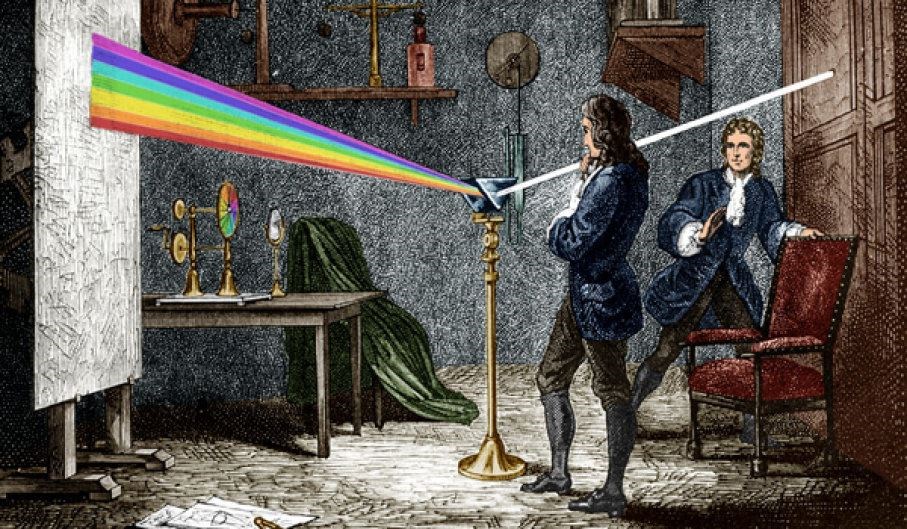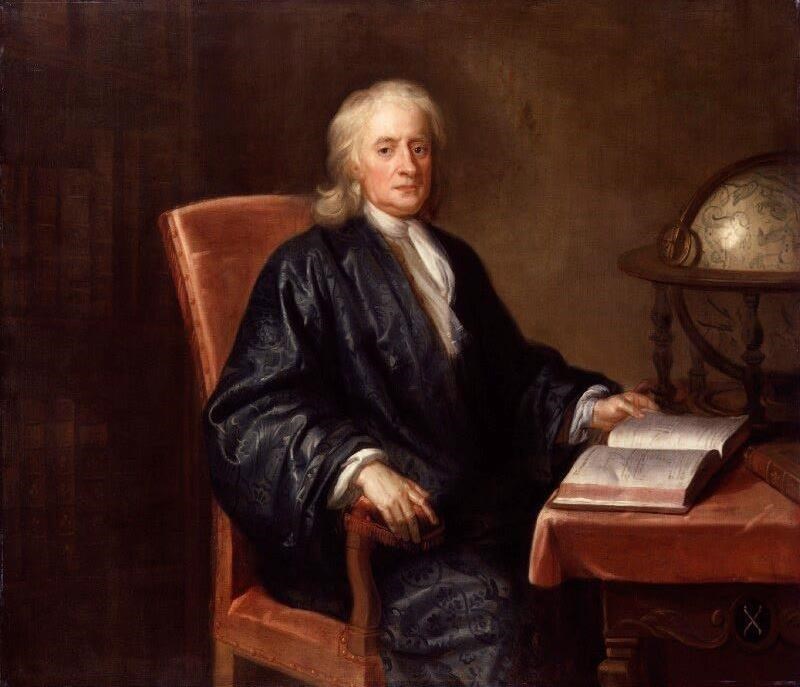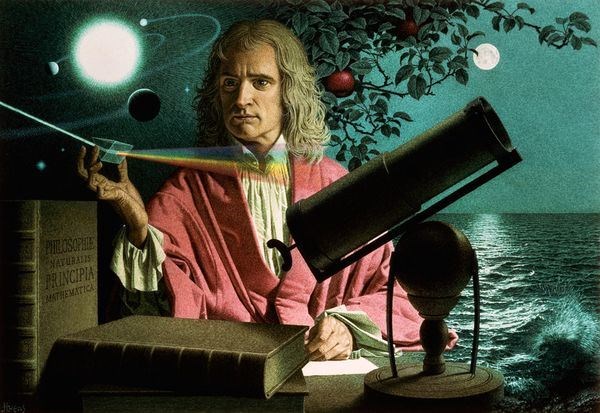 Millions saw the apple fall, but Newton asked whyhttps://briankoberlein.com/2014/06/13/newtons-apple/Millions Saw The Apple Fall, But Newton Asked Why
Millions saw the apple fall, but Newton asked whyhttps://briankoberlein.com/2014/06/13/newtons-apple/Millions Saw The Apple Fall, But Newton Asked Why
A wonder flies through the air, gracefully soaring above the city’s skyline. Civilians throughout idolize his courage and cheer his name: “SUPERMAN! SUPERMAN! SUPERMAN!” Utilizing his super-strength and sonic speed, he hurries to the collapsing building with hundreds of desperate people inside, lifts it up at the last second, and sets it down safely on top of a nearby park. Everyone cheers on the hero they know and love. As demonstrated by Superman, heroes, regardless if real or not, play an important part in society. They serve as an inspiration to others and shape society. However, we must ask, what makes someone worthy enough to be called a hero? Heroes have many admirable traits. Many heroes help others, either directly or indirectly. Helping others can start a chain reaction that leads to a better world. Furthermore, as Joseph Campbell puts it, “A hero is someone who has given his or her life to something bigger than oneself” (Campbell). However, heroes share a common criterion: they contribute to society positively, one way or another. It can be a great contribution or just a small, helpful action. People can find heroism in a man giving to the homeless, revolutionizing scientists from centuries in the past, great leaders, and a teen stopping a bully. These heroes are always determined to change the world any way they can. Admirable heroes constantly strive to make the world a better place, no matter how big or small their contribution might seem.
 Portrait of Isaac Newtonhttps://en.wikipedia.org/wiki/Isaac_Newton Heroes make society a better place for all, and this is not always done directly. Isaac Newton’s scientific work has advanced science throughout the world and progressed society much more than it would have without him. He was born on January 4th, 1643, in Woolsthorpe, a small town in Lincolnshire, England. His father died and his mother left when Newton was very young, leaving his grandmother to take care of him. He always loved science and learning and, at nineteen, he attended Cambridge University. He continued his studies independently after his university was closed down because of a plague, and then came back to get his master’s degree. He is most known for studying various fields in science and revolutionizing the way scientists think about the world today. He advanced worldwide math concepts and made key discoveries in physics that was the first of his time. He even published Principia Mathematica, a book filled with his astounding discoveries, revolutionizing science for years to come. Newton was always determined to learn and discover science. Newton’s vast contributions to many fields of science and his determination to learn and discover make him a heroic inspiration to many mathematicians, scientists, and students.
Portrait of Isaac Newtonhttps://en.wikipedia.org/wiki/Isaac_Newton Heroes make society a better place for all, and this is not always done directly. Isaac Newton’s scientific work has advanced science throughout the world and progressed society much more than it would have without him. He was born on January 4th, 1643, in Woolsthorpe, a small town in Lincolnshire, England. His father died and his mother left when Newton was very young, leaving his grandmother to take care of him. He always loved science and learning and, at nineteen, he attended Cambridge University. He continued his studies independently after his university was closed down because of a plague, and then came back to get his master’s degree. He is most known for studying various fields in science and revolutionizing the way scientists think about the world today. He advanced worldwide math concepts and made key discoveries in physics that was the first of his time. He even published Principia Mathematica, a book filled with his astounding discoveries, revolutionizing science for years to come. Newton was always determined to learn and discover science. Newton’s vast contributions to many fields of science and his determination to learn and discover make him a heroic inspiration to many mathematicians, scientists, and students.
 Newton investigating lighthttps://www.missedinhistory.com/blogs/missed-in-history-isaac-newton.htm Newton’s great contributions to math and science greatly impact the modern world of science and continue to pave the way for modern scientific discoveries and theories. He worked on various subjects in math and physics throughout his career and made great discoveries: “he performed the basic experiments and apparently did the fundamental thinking for all his subsequent work on gravitation and optics and developed for his own use his system of calculus” (Encyclopedia of World Biography). The word “fundamental” used here indicates that Newton’s work was foundational for modern science. For instance, Calculus is very important in physics and math since it is used to calculate equations with changing variables. Newton’s discovery of gravity is also the base of modern physics. Scientists all over the world are influenced by his work, and many modern scientific concepts are based on Newton’s ideas. His influence on society was well-pronounced for many centuries. Furthermore, Newton’s main published work, The Principia Mathematica, contained much of Newton’s revolutionizing work:
Newton investigating lighthttps://www.missedinhistory.com/blogs/missed-in-history-isaac-newton.htm Newton’s great contributions to math and science greatly impact the modern world of science and continue to pave the way for modern scientific discoveries and theories. He worked on various subjects in math and physics throughout his career and made great discoveries: “he performed the basic experiments and apparently did the fundamental thinking for all his subsequent work on gravitation and optics and developed for his own use his system of calculus” (Encyclopedia of World Biography). The word “fundamental” used here indicates that Newton’s work was foundational for modern science. For instance, Calculus is very important in physics and math since it is used to calculate equations with changing variables. Newton’s discovery of gravity is also the base of modern physics. Scientists all over the world are influenced by his work, and many modern scientific concepts are based on Newton’s ideas. His influence on society was well-pronounced for many centuries. Furthermore, Newton’s main published work, The Principia Mathematica, contained much of Newton’s revolutionizing work:
“The Principia Mathematica revolutionized science by providing an explanation of the forces that controlled the regular movement of planets as described by German astronomer Johannes Kepler (1571-1630) laws of planetary motion. It also elegantly showed how celestial bodies and earthly objects followed a single law of gravitation. This overall scheme of the workings of the universe was the crowning accomplishment of the Scientific Revolution” (Scientists: Their Lives and Works).
Newton’s gravitational and planetary work was paramount for modern physics theories and concepts discovered many years after Newton lived. Words such as “revolutionized,” “explanation,” and “accomplishment” further emphasize how important Newton’s work was to science. His laws of gravitation have been essential to the technological advancement of the human species and have helped with space travel, aerodynamics, and any field that is impacted by gravity in even the slightest bit. This shows how Newton impacted the world and advanced scientific progress by many years. His contributions to science can also be found in Newton’s mathematical papers from University, which indicate some concepts Newton worked on: “Early development on Newton’s ideas on kinematics and dynamics: the influence upon him on Descartes, 3. His ‘Waste Book’ notes on motion 4.) Kepler’s third law used to derive the planetary inverse-square law of centrifugal ‘endeavour’” (Whiteside). All of these concepts are often used in modern scientific theories and concepts. These theories would be greatly different or perhaps even non-existent if not for Newton’s work, and society would have greatly fallen back in technology. It would now be as advanced as it was decades ago, if not for Newton. Newton’s work was very important and was a huge contribution to the world of science. Without Newton’s work and great contributions, society could not have advanced as much as it did in science, physics, and technology.
Newton’s love for learning and his constant determination to discover and teach allowed him to excel in science and have the impact he did. For instance, Newton shows his determination in writing one of his greatest works: “Principia Mathematica was written in only 18 months and apparently exerted an enormous strain on Newton” (Scientists: Their Lives and Works). Even with his “enormous strain,”, he was determined to share his discoveries with the public, and he did so in only 18 months. Newton was determined to teach and share his concepts, even with the strain on him. His book greatly impacted science and changed the world’s scientific advancement. Without his determination, he might not have been able to publish the book and science would have fallen behind. Furthermore, his University papers describe one instance that showed his determination: “The open challenge from Christopher Wren theoretically to define the paths of the solar planets which Halley then communicated to Newton re-kindled in him a devouring flame of interest in the general dynamical motion of bodies which had more than fire years before flickered fitfully into life during his correspondence with Robert Hooke and since lain dormant” (Whiteside). Newton taking the challenge from Wren indicates that he is determined to learn new things. His “devouring flame of interest” also shows his passion for learning. This shows Newton’s determination to learn new concepts and his determination from the challenge proposed. His determination played a distinct role in him being the science prodigy he was and could not have discovered so many important concepts. Newton’s determination not only could be seen during his university years but could also be observed after that, when his university was closed down because of the plague:
 Newton studying and learning physicshttps://www.npg.org.uk/collections/search/portraitLarge/mw04661/Sir-Isaac-Newton“Then, in 1665, the plague closed the university, and for most of the following two years he was forced to stay at his home, contemplating at leisure what he had learned. During the plague years, Newton laid the foundations of the calculus and extended an earlier insight into an essay, ‘Of Colours,’ which contains most of the ideas elaborated in his Opticks. It was during this time that he examined the elements of circular motion and, applying his analysis to the Moon and the planets, derived the inverse square relation that the radially directed force acting on a planet decreases with the square of its distance from the Sun—which was later crucial to the law of universal gravitation” (Westfall).
Newton studying and learning physicshttps://www.npg.org.uk/collections/search/portraitLarge/mw04661/Sir-Isaac-Newton“Then, in 1665, the plague closed the university, and for most of the following two years he was forced to stay at his home, contemplating at leisure what he had learned. During the plague years, Newton laid the foundations of the calculus and extended an earlier insight into an essay, ‘Of Colours,’ which contains most of the ideas elaborated in his Opticks. It was during this time that he examined the elements of circular motion and, applying his analysis to the Moon and the planets, derived the inverse square relation that the radially directed force acting on a planet decreases with the square of its distance from the Sun—which was later crucial to the law of universal gravitation” (Westfall).
Even when his university was closed down because of the plague, and Newton was “forced to stay at home,” Newton’s determination allowed him to continue discovering concepts from many fields and even lay the foundations of calculus. His extensive work illustrates that he was determined to learn and discover, even when the plague struck Europe and his university had to close down. Newton’s discoveries he worked on while the plague hit are used commonly among scientists today, and society is dependent on these concepts which could not have existed if Newton wasn’t determined to begin with. Newton’s determination to learn, discover, and teach was clearly shown throughout his much work and achievements and was a vital factor in Newton’s contributions to the world.
Isaac Newton is a heroic inspiration to others because of his great contributions to science and his determination and passion for discovering new ideas and revolutions. Newton did loads of research throughout his lifetime and discovered many fundamental concepts of math, science, and physics. Some of these concepts, such as calculus, the laws of force, gravity, and optics, are still commonly used by scientists all over the world today. Newton also loved learning, and whenever he had the opportunity to, or when a challenge arose, he was always determined to discover whatever was hiding and to overcome the challenge. His determination allowed him to accomplish the uttermost he could for science. Newton is an inspiration to many scientists and students because of all the great things he has done. According to Encyclopedia of World Biography, “His works continued to impact the math and science communities for centuries after his death. In a series of polls conducted by London's Royal Society in 2005, Newton was voted as having the greater impact on science and humankind in general over theoretical physicist Albert Einstein, whose theory of relativity led to the development of modern physics”(Encyclopedia of World Biography). People find Isaac Newton to be one of the most revolutionary scientists to ever live, even more so than Albert Einstein, and not just for any reason. They are inspired by Newton’s discoveries and achievements. If Newton by himself could change science forever, maybe so can they. Newton inspires me to constantly strive for my best. Newton’s work in math and physics fuels my passion for these fields and inspires me to be the best scientist I can be. Newton’s determination encourages me to try harder and never give up--who knows, maybe I can change the world as well. Although Isaac Newton and Superman used their abilities for different things, they are both considered heroic by many, whether it’s because of helping people or helping science. In the end, both do good to the world, one way or another.
 Newton and his contributions to sciencehttps://www.awesomestories.com/asset/view/Isaac-Newton-and-the-Falling-Apple//1
Newton and his contributions to sciencehttps://www.awesomestories.com/asset/view/Isaac-Newton-and-the-Falling-Apple//1
Works Cited
"Isaac Newton, Sir." Encyclopedia of World Biography, Gale, 1998. Biography in Context, https://link.galegroup.com/apps/doc/K1631004834/BIC1?u=powa9245&xid=8d25d0d1. Accessed 21 Dec. 2017.
"Isaac Newton." Scientists: Their Lives and Works, UXL, 2006. Biography in Context, https://link.galegroup.com/apps/doc/K2641500155/BIC1?u=powa9245&xid=41abf322.Accessed 21 Dec. 2017.
"Joseph Campbell Quotes." BrainyQuote.com. Xplore Inc, 2018. 18 January 2018. https://www.brainyquote.com/quotes/joseph_campbell_138795
Rich, Alex K. "Isaac Newton." Sir Isaac Newton, 8/1/2017, p. 1. EBSCOhost, search.ebscohost.com/login.aspx?direct=true&db=b6h&AN=20265448&site=brc-live
Westfall, Richard S. "Newton, Sir Isaac." Britannica Biographies, 3/1/2012, p. 1. EBSCOhost, search.ebscohost.com/login.aspx?direct=true&db=b6h&AN=32419204&site=brc-live
Whiteside, D.T., editor. “The Mathematical Papers of Isaac Newton.” Cambridge University, 1691, assets.cambridge.org/97805210/45858/frontmatter/9780521045858_frontmatter.pdf.
Page created on 2/16/2018 6:12:36 PM
Last edited 2/25/2018 4:05:32 PM
-Newton was actually born on Christmas day, 1642, but in 1752, England switched from the old Julian calendar to the newer Gregorian calendar, moving his birth date to January 4th, 1643.
